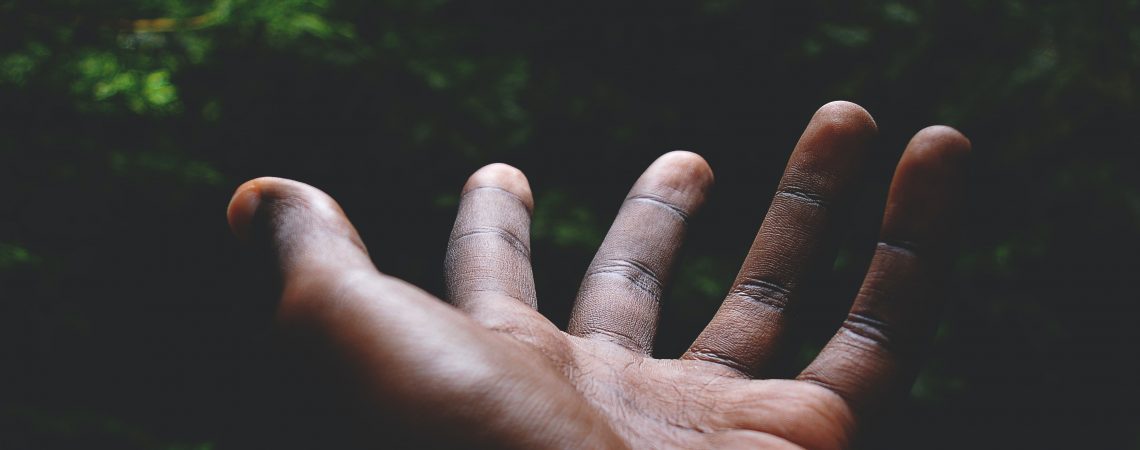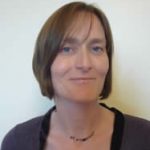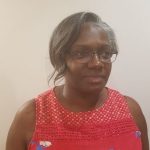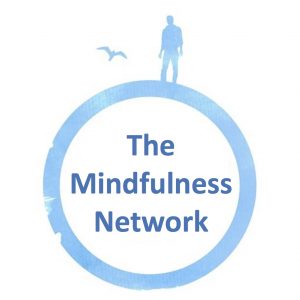
At the Mindfulness Network, we recognise that the mindfulness world is not truly representative and diverse. Bridgette O’Neill, our Retreat Lead and part of the Bangor University Training Team, recently met with Pauline Gibbs, Founder of MindfulBowl London to discuss her journey and the current mainstream mindfulness sector’s unbalanced demographic.


Pictured, Bridgette (left) met Pauline (right) to ask the following questions:
What drew you to mindfulness?
I attended a 6 week introduction to mindfulness course in about 2010 in a Recovery College as I was struggling with stress. The course reconnected me to contemplative practices similar to those I was familiar with from my faith community. I had got disconnected from these and from myself through my work, and the mindfulness course reintroduced me to me. It kind of snowballed from there. I loved it so much and did the course again and did an eight week course and then a deepening course. I was then asked to support the teachers in delivering the introductory course at the Recovery College. That was in 2011. I enjoyed it and wanted to go further and so I started teacher training initially with another organisation and then with the Mindfulness Network. What I loved about the Mindfulness Network teacher training is that it allowed me to explore mindfulness without impinging on my own faith, so I could incorporate it into who I am.
What has the experience of doing teacher training been like for you?
It’s been a mixed bag. Initially I started training in a context that has a spiritual aspect to it but sometimes I felt excluded from that and then, joining a context that doesn’t include the spiritual aspect, sometimes I’ve found myself thinking ‘where’s it gone?’ so trying to find that balance has been interesting. As I’ve gone on and done more training, it’s become more about how do I incorporate the whole of me into delivering mindfulness so I don’t leave part of me outside the room and I can be congruent, bring the whole of me to teaching. Spirituality is important to me as it is for many people of colour and can’t be ignored – that’s something that’s important for me within my mindfulness practice and teaching.
Another major part of my experience was the more I trained and the more events I went to, the more I noticed there were very few people who looked like me. No matter what setting I went to there were very few people of African or Caribbean descent. More often than not I was the only one.
What was that like for you?
I was brought up in the UK in Britain and most of the seas I swim in were like that. But I got a bit confused with mindfulness because this is originally from an Eastern tradition, admittedly delivered in a Western format but without the eastern and southern hemisphere represented. It felt weird, at times. So I’ve got my race and my faith and at times they’ve seemed like obstacles within the mindfulness world so that’s interesting. My work outside mindfulness is about inclusivity and involvement and seeing these barriers happening in an approach that is so new, at least in this country, made me really question why, when we’ve been working so hard to actually change things and increase who feels included elsewhere, why is this happening in the mindfulness world.
So it sounds like you could see something really clearly about the mindfulness world.
Yes. I was at a retreat taught by Lama Allan Wallace on the four applications of mindfulness. I was loving it; the teachings were really resonating with what I’m familiar with through my own study. There was one point when he was talking about diversity. There were 120 of us on this retreat and I looked round the room and there were three people who were not white; two of them came from Thailand and the third one was me and that was the point at which I said ‘there’s something not right here’, ‘something’s missing here’. And that was my spur to actually look at where are we, people from my community, and why are we not in this room.
It wasn’t about condemning anyone but more a desire to look at if we’re not in the room what’s missing that’s not allowing us to come or is our community turning around and saying we don’t need this (mindfulness). Maybe we’ve got this covered. So that’s where I’m coming from. I need to actually go and listen to what our community is actually saying. Let me go and find out rather than make assumptions. Who is missing and why?
As I looked wider, it seems there’s a lot of people missing; a lot of people not around the table. As I started looking more, it seemed to me that what’s happening in the mindfulness community very much mirrored the NHS. That’s interesting; the model they’re looking at seems a medical model although this is not a medical approach. For me, mindfulness is a communal and spiritual life approach.
When we look, who’s in the mindfulness community? People tend to be white and middle class; there are quite a few females but at the very high echelons most people are also men. In terms of people of colour there were very few. I felt that was sad. It was very much looking like the situation in the NHS. I was familiar with the paper ‘Snowy White Peaks’ by Roger Kline and the mindfulness world to me looked very much like his description of the NHS where senior roles are occupied by white people. Although a difference with the NHS is that in the mindfulness world, the bottom part of the mountain doesn’t have very many people of colour either. They’re probably at the other end of the valley or in the river trying to make their way to the mountain or there were just a few speckled into the snow at the bottom of the mountain. So this was going round in my head and it made me realise this is too big a project just for one individual to take on board. This is too much for me to do on my own. I did some research to see what others were doing. There was a lot of people coming together to talk but it seemed that they continued to talk with nothing changing. It was almost like there was a fear in relation to race.
And having seen the situation, I know that you’ve been taking forward some work through your own mindfulness teaching. Do you want to say a bit about this?
Seeing what needed addressing and realising there’s no way I can cover all of this, I thought one community that I do know is my own so why not start with exploring the Black urban community that I understand. So I started delivering predominately MBSR courses in mainly black community settings such as a black Pentecostal church or a community centre. In delivering in these settings, you tend to attract people from those communities in the first place. But this kind of community work needs a certain approach. It’s not enough to put a leaflet up or put an advert out. These kinds of communities tend to have elders and are family oriented so you need to make connections over cups of tea first otherwise they’ll close you down. Trust is earned, not suddenly given, especially when there’s been many years of mistrust and there’s a misunderstanding about mindfulness -that it’s about Buddhism and goes against other spiritual beliefs. Spirituality is often central to people of colour. This view of mindfulness is beginning to change as it becomes more accessible in different settings such as schools but still we need to build trust. I had just really begun this work when the pandemic came so it’s been interrupted and I’m just picking it up again now.
During 2019, I had also been talking with Rebecca Crane reflecting on the current situation in the mindfulness community, trying to make sense of what was actually happening, which included conversations on the barriers for people of colour. One is clearly that there aren’t people who look like me delivering courses or trainings; another is cost and whether or not it’s possible to earn a living from mindfulness teaching. These are important considerations for people from oppressed communities. We started to think about what can we do about these barriers. We came up with the idea of doing a pilot introductory teacher training course where we prioritise people from Black, African, and Asian backgrounds.
The pilot training is based on a really well established programme, that’s been developed over many years through Bangor University and delivered now in partnership with the Mindfulness Network, based in the evidence based programmes of MBSR and MBCT. Our question is: can we take that existing programme and prioritise people from Black, African and Asian backgrounds? The participants will be bringing themselves, their backgrounds and understandings into the training and we will learn together with us as trainers seeing what needs to be adapted to be relevant for this particular group. That’s how this Level 1 Teacher Training Course that’s planned for February 2021 has come about.
It’s a starting point with a question for us of: what’s needed here? What can we learn from this pilot? Our intention is to do this first level introductory teacher training bringing in some adaptations such as more focus on community and being less individually focused and to really hear from people doing the training in order to influence what happens next. Our aspiration is that what is learned will also help inform how we can increase accessibility for other groups that are currently not present in the mindfulness community. The idea is starting here what can we learn about inclusion and adapting to the particular needs of different groups.
It’s great to hear that aspiration. Anything else you’d like to say about this particular teacher training?
A central question for me is: how do we bring more of the social and communal aspect of being human into this teacher training while staying true to the essential elements of the established programme? The programme to me seems to have an individual focus so how do we deliver what needs to be delivered from the programme and include more of the social, communal and cultural aspects that are relevant for people in the room. Staying true to the integrity of MBSR and MBCT but open to the broad lived experience of people in the room.
That seems to bring us back to your original question early on in your own experience of teacher training of how can you bring the whole of yourself into the room?
Yes, early on it felt like I needed to learn a bit of a new language but not only learn a new language but leave some of me at the door. But we’re encouraged to teach from embodiment and it’s not possible or true or ethical to be embodied but not bring all of myself. I’m hoping that this TTC1 enables people to feel that they are empowered and that who they are and the wisdom that lives within them is valued, while still staying true to the essential elements of an introductory MBSR and MBCT teacher training programme. I think there’s lots to learn from different wisdom lineages and there’s also a need to stay clear that what we are doing is based in MBSR and MBCT and that after the training people are equipped to teach in keeping with MBSR and MBCT. There are other approaches that are really valuable and more explicitly focused on other wisdom traditions. It’s important to be clear that our approach is rooted in MBSR and MBCT. We don’t know what might emerge from the pilot. Perhaps it might lead to change in how we do things; perhaps it won’t. I personally hope it guides us to know how to bring more of the social and communal aspects of experience into mindfulness programmes because I think that’s missing.
Thank you so much for taking the time to share your experience and your aspiration with me today. It’s been great talking with you.
Teacher Training Course Level 1 prioritising people from Black, African, Asian or Caribbean heritage
Addressing the current mainstream mindfulness sector’s unbalanced demographic
2 Feb – 23 March 2022
Eight days of online training (6 full days / 2 half days)
This Teacher Training Course Level One (TTC1) is particularly aimed at people from Black, African, Asian or Caribbean heritage (Africans/Asians/Caribbean of any descent and the African/Asian diaspora) and is also open to other People of Colour who are affected by prejudice due to the colour of their skin.
The learning from this project will inform future initiatives to broaden access to groups/populations/communities who are underrepresented within the mainstream mindfulness world.
The course is available to book online and bursary assisted places are available. For full details and to apply, please go to: https://booking.mindfulness-network.org/course-information/?id=832
We are also holding a FREE Q&A session about this course:
Interested in finding out more?
10 November 2021, 7-8.30pm UK Time, via Zoom
This is an opportunity to ask questions about the Teacher Training Course Level One (TTC1) and meet the trainers who are themselves from a diverse heritage. They are: Bridgette O’Neill and Sud Ubayasiri, who are both members of the Bangor University training team, and Pauline Gibbs who is a mindfulness teacher and founder of the MindfulBowl, London. If you are wondering whether this training is for right for you, please come along.
Join Zoom Meeting: https://mindfulness-network-org.zoom.us/j/84305512928?pwd=WElNRGRlWUFsVFhaaGlzZzJ6MVRNZz09
Meeting ID: 843 0551 2928
Passcode: 167873





One comment on “Underrepresentation within the Mainstream Mindfulness World: An Interview with Pauline Gibbs”
Winnie Lee
November 12, 2021 at 4:15 amThanks to Bridgette and Pauline for addressing the issue of cultural diversity and the need to extend mindfulness teaching to the non-English speaking communities. In order to benefit more people in the community, there is indeed a large demand for training more mindfulness teachers who are coming from the same cultural background, who know the local context well and who can speak the same language. In my place, there is only a small group of mindfulness teachers who teach mindfulness to the local people and the demand is still great. There is a need to train up more experienced mindfulness teachers to become trainers who help to groom more mindfulness teachers to reach out to the larger community. I really hope that MN can look into the issue of developing a training path for non-English speaking mindfulness teachers to become trainers to help train more local mindfulness teachers so as to benefit more people in the local community.